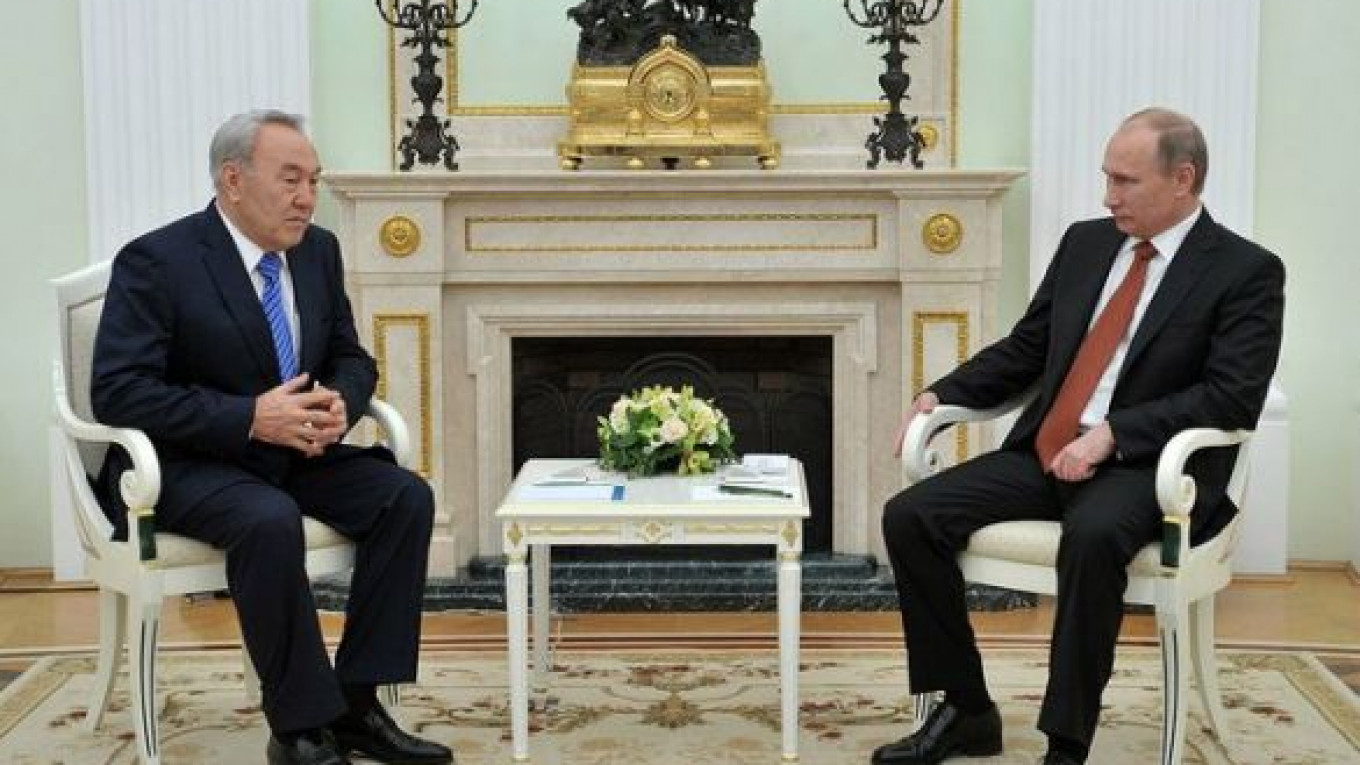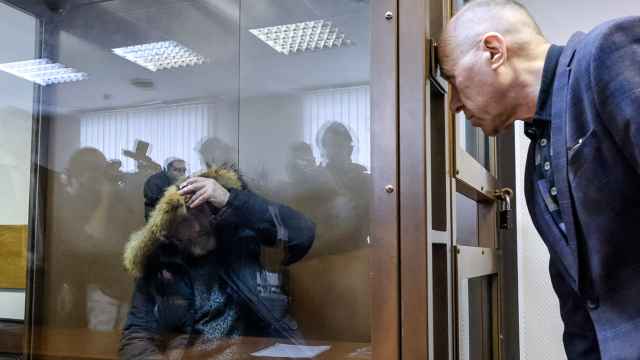Kazakh President Nursultan Nazarbayev and his Russian counterpart, Vladimir Putin, said Friday that they had agreed to end their dispute over the Baikonur Cosmodrome, which Russia rents from the Central Asian nation.
Putin, who received Nazarbayev in the Kremlin, said that amid increasing cooperation between the two countries, there are "a lot of issues" that need to be discussed, according to a statement on the president's website.
Most of Russia's space launches take place at Baikonur, but it has recently experienced problems connected with the use of the facility.
Russia pays $115 million per year to lease the Baikonur facility, once a Soviet property, and Kazakhstan determines the number of launches Russia is allowed.
Russian space officials sought 17 launches this year, but Kazakh authorities are allowing only 12, citing possible environmental damage from rocket fuel.
Russia is building its own launch pad, the Vostochny Cosmodrome, in the Amur region near the Chinese border, which is to be completed in 2015.
Both presidents said Friday that they had found common ground on the Baikonur issue, RIA-Novosti reported, citing the leaders.
Izvestia reported earlier, citing diplomatic documents, that tensions between the countries had arisen in late January, when Russia threatened to leave Baikonur if Kazakhstan cut the number of launches.
Foreign Minister Sergei Lavrov said later that the media had "exaggerated" the situation that and it was a "working issue."
Analysts said Kazakhstan is not interested in pressuring Russia on the Baikonur issue, as both countries are part of the customs union and Russia sees Kazakhstan as its main ally in Central Asia.
Bilateral trade between Kazakhstan and Russia amounted to $21.5 billion in 2012.
The countries intend to sign a new friendship treaty in Yekaterinburg this fall, Nazarbayev said Friday.
"Kazakhstan is our strategic partner, and though the sides might sometimes be engaged in horse-trading over certain issues, we are destined for a partnership," political analyst Ernest Sultanov said Sunday. "Kazakhstan also knows that Chinese influence creates certain risks, and it is important for them to follow this strategy on Russia."
Nazarbayev said Friday that by May the countries would prepare an agreement on the Eurasian Economic Union, scheduled to be unveiled by 2015.
The Eurasian Economic Union, which will also include Belarus, will oblige member countries to unify their migration and labor laws and will introduce a single currency.
Contact the author at [email protected]
A Message from The Moscow Times:
Dear readers,
We are facing unprecedented challenges. Russia's Prosecutor General's Office has designated The Moscow Times as an "undesirable" organization, criminalizing our work and putting our staff at risk of prosecution. This follows our earlier unjust labeling as a "foreign agent."
These actions are direct attempts to silence independent journalism in Russia. The authorities claim our work "discredits the decisions of the Russian leadership." We see things differently: we strive to provide accurate, unbiased reporting on Russia.
We, the journalists of The Moscow Times, refuse to be silenced. But to continue our work, we need your help.
Your support, no matter how small, makes a world of difference. If you can, please support us monthly starting from just $2. It's quick to set up, and every contribution makes a significant impact.
By supporting The Moscow Times, you're defending open, independent journalism in the face of repression. Thank you for standing with us.
Remind me later.






